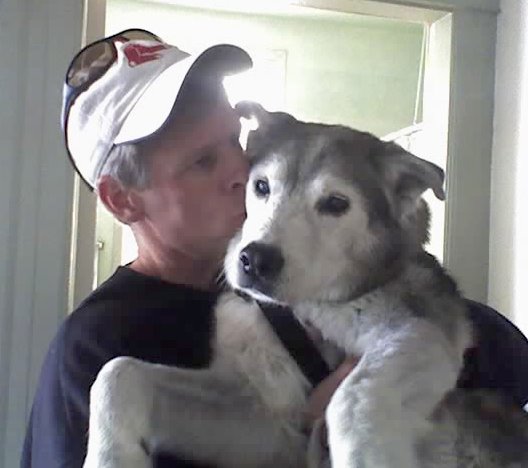Cyclists After Katrina
Just back after a couple weeks in New England; family situation. Thanks for forwarding this to the SFBike list. This whole Katrina-Rita thing has been disgusting. The storm was a "natural" disaster (made worse by Bush-neglected global warming, for sure.) The flood and failed response were clearly policial disasters.
Tragic disasters also provide the opportunity to rebuild a community better--think of the Embarcadero and Central Freeways demolished after the 1989 earthquake. Good riddance. I hope activists in New Orleans will press for improved walkability, greater densities, improved parks, bike facilities, etc.
Despite the resistance of some to rebuilding it below sea-level, New Orleans will get rebuilt, for sure. Among other things, the Midwest Ag industry needs a deep-water port in about that location to transfer from river barges to ocean-going ships. Ports need port workers, who in turn need schools, stores, diversions, etc. If Holland can do it, why not New Orleans? (Well, they have better, more bike supportive politics for one thing....)
I'm concerned that New Orleans will get rebuilt as a casino-tourist-yuppie playground cleansed of the low-income people of color. Livable cities advocates can perhaps bridge to multicultural activists by pressing for affordable and transit-friendly housing for everyone.
See you at Critical Mass,
Pablo
--- Dave Snyder
This is a post from Audrey Warren of the (New Orleans) Metro Bicycle Coalition I thought you should read:
Sep 03, 2005
Listserv post from Audrey Warren of New Orleans Metro Bicycle Coalition regarding Hurricane Katrina:
Hello All,
Just checking in. We are pretty sure that everyone on the New Orleans Metro Bicycle Coalition board got out safely, myself included, but not without a deep sadness in our hearts. If anyone has any questions about specific people and their whereabouts, they can contact me directly at audreykwarren@yahoo.com
There are a thousand different ways to look at what has happened, but since this is an organization of bike/ped advocates, I wanted to give a perspective that is relevant to this group. It's a long posting, but I hope you will indulge me. I've got a lot on my mind.
There's a tricky question on the US census longform that asks if your household has access to a car. I live by myself and haven't owned a car for years, but I can't honestly say that I don't have access to a car. I have a friends and family who I can (and do) call on anytime to borrow their car. I have money to take a taxi or rent a car whenever I need it. I have chosen to live without a car, but have access to all of the privileges that would go with ownership, just none of the hassle. It was never a question as to whether I would get out of the city. We had reservations at a hotel in Dallas by Friday night.
Perhaps the largest issue that we have struggled with in the formation of the New Orleans Metro Bicycle Coalition is connecting with the population of folks that depend on their bicycle as their only mode of transportation, people who are honestly just barely scraping by. We all know that it is notoriously difficult to get numbers on cyclists, much less get an accurate sense of the demographics, but I would say that easily more than half the bicyclists on the road in New Orleans are riding not because of some ideology or health goal, but because they are broke and even bus fare is beyond their means.
The vast majority of the people who were left behind had no way out. When you are watching these images on the television, I challenge you to see them as the unseen, marginalized faces of bicycling - the folks that ride everyday, but never find their way to our membership lists, or speak at the Bike Summit, or subscribe to The Ride. Part of the horror of this event is that we as a nation have turned our back on the poor, and that in most urban areas, poverty and race are inextricably linked.
For me, advocating for bicycle and pedestrian rights is about social justice, and the 900 lb gorilla in the corner is that the complexion of our movement is largely white, middle class. I would like to hear a conversation in the bike/aped advocacy movement that really addresses these issues so that we as a collective can work to put our own house in order.
If you would like to help out with the tragedy, please consider working in your own organizations to strengthen your ties with communities of color, and connect with people who are struggling with poverty every day. With all of the madness that is being broadcast on the television, it is difficult to know what to do, and I offer this as a meaningful way to channel your desire to help. Reaching out beyond our historic base is not trivial - or easy - but we can't claim that we're just an upstart grassroots movement anymore without enough resources to do it right. If we in New Orleans had made it a priority to address the needs of those who can't afford a car, we would never have seen the devastating images of those that were left behind.
-audrey
------------------
Audrey Warren
New Orleans Metro Bicycle Coalition

